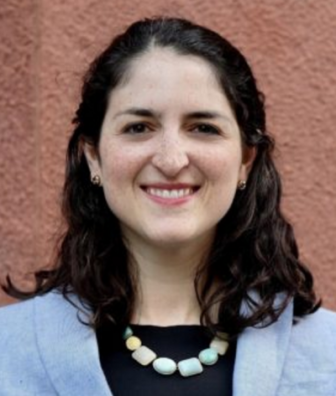![]() Imagine being 16 years old, arrested and charged with a crime after getting into trouble with a friend. You will remain locked up until your hearing. You haven’t spoken to anyone about what's going on. Eventually, you meet your attorney 45 minutes before court and he says the prosecutor wants to offer you a deal. If you admit guilt, your punishment will be lighter than if you are found guilty in juvenile court.
Imagine being 16 years old, arrested and charged with a crime after getting into trouble with a friend. You will remain locked up until your hearing. You haven’t spoken to anyone about what's going on. Eventually, you meet your attorney 45 minutes before court and he says the prosecutor wants to offer you a deal. If you admit guilt, your punishment will be lighter than if you are found guilty in juvenile court.
You ask if you can have time to think and talk to your mom but the attorney says you must decide quickly because your hearing starts in 30 minutes. He also says if you take the deal, you’ll go home today, but if you turn it down you’ll have to wait in juvenile detention for your next court date. He says that you can’t change your mind after taking the deal. You ask your attorney what he thinks you should do and he says it is your decision, but if it was him, he’d take it.
You say you’ll take it. Your attorney tells the prosecutor. You need to quickly review what rights you’re giving up by pleading guilty. He says the judge will ask if you understand these rights and tells you how to answer the judge’s questions to make sure your deal is accepted. Only now does your attorney say you’re giving up your right to a hearing, to call witnesses and a bunch of other rights you don’t understand. You start wondering if you made the wrong choice but instead try to focus on going home.

Emily Haney Caron
Navigating this process is stressful and confusing for adults, but even more so for youth. Research on plea bargains shows that this narrative, while hypothetical, is similar to what many youth experience. Research on adolescent development and neuroscience makes clear: Youth simply cannot handle this situation in the same way adults might.
Adolescents are undergoing major changes in how they think and process emotion and how their brains function. As a result, adolescents behave differently than children and adults. Research on decision-making shows that adolescents are more likely than children or adults to take risks and make impulsive choices.
Adolescents prioritize smaller rewards now over future larger rewards — and over the possibility of serious negative future consequences.
Adolescents don’t think like adults
These changes in behavior correspond to shifts in brain development. The brain continues to develop into the mid-20s. Brain systems that control basic behaviors, like vision and movement, mature earlier than brain systems involved in higher-level behaviors, like decision-making and self-control.
Research suggests that highly emotional situations make it especially difficult for adolescents to make adultlike choices. Because of this, under the stress of legal involvement, adolescents don’t think things through as adults would. These differences in adolescent and adult behavior in stressful, emotional situations are paralleled by differences in brain activity. For adolescents, even more than adults, context matters.
Ongoing development of decision-making abilities in emotional contexts can lead adolescents into the justice system and to poor decisions once there. The adolescent in our example — who likely landed in the system due to poor decision-making in the presence of peers and then had limited time to make a plea decision — is also likely to prioritize going home sooner, all due to normal brain development.

Erika Fountain
Most youth end up formally involved in the legal system through a plea deal. In fact, the majority of both adult convictions and juvenile adjudications result from negotiated plea decisions. Juvenile court judges and attorneys who process these pleas cannot ensure appropriate outcomes for youth unless they understand adolescent decision-making capacities.
Negotiating pleas in juvenile court often involves a disposition, or sentence, in exchange for the youth admitting guilt. Sometimes the outcomes of these negotiations are the best available legal option or protect youth from harsher sanctions. Even in those cases, taking the plea still causes many indirect consequences beyond what the youth bargained for.
Juvenile adjudications can impact military service, may result in the loss of public housing benefits, expulsion from school, deportation or other immigration issues, loss of driving privileges and even sentencing enhancements if the youth is ever convicted in criminal court. The youth may also be expected to waive their right to appeal as part of the plea, making these consequences nearly impossible to overturn.
Before making a plea deal, it is critical for youth to consider and appreciate not only the short-term gains and costs but also how the decision might shape their life for years to come.
Youth sometimes willing to falsely plead guilty
Legally, no one is supposed to take a plea deal unless they know the rights they’re giving up for these potential benefits. Research exploring youth legal decision-making generally and plea decisions specifically suggests that adolescents may not be making informed and intelligent pleas.
Youth think plea offers are good when adults are more skeptical. In one study, the majority of adolescents would recommend that a defendant take a plea that adults seemed unsure of; about 75% of young adolescents approved of the plea compared to 50% of adults.

Alexandra Cohen
Of greater concern, this increased willingness to accept plea deals applies even when youth are innocent of the alleged offense. Approximately 25% of youth interviewed after pleading guilty to felonies in New York City admitted to having falsely pled guilty. Similarly, in California, about 20% of interviewed youth claimed they falsely pled guilty, with the average age of 14 years old for first false guilty plea.
In line with research on adolescents’ tendency for impulsive decision-making, youth who have accepted plea bargains reveal they often do so for immediate gain, without regard for the long-term consequences. They may want to get the process over with, avoid the unpleasantness of trial or get out of pretrial detention.
This shortsightedness can lead to hasty decision-making, putting youth at risk of bad outcomes.
Some youth likely plead guilty at the recommendation of their attorney, with little knowledge of the legal system. Adolescents are more influenced by authority figures than are adults and some research has even shown that adolescents’ decisions coincide with how their attorney, parents or peers believe they should plead.
Youth who plead guilty often do not understand the factors associated with their decision, so even if youth aren’t pressured by the adults around them, they may rely on their advice. For example, interviews with youth who pled guilty showed they didn’t understand the rights they waived and knew significantly less about the consequences of their plea than adults. Limited time spent with an attorney before pleading guilty contributes to this problem by taking away the youth’s opportunity to ask questions and learn more.
Young people need protection in making choices
Youth may look to parents for advice on how to plead. Unfortunately, many parents also lack legal knowledge and misunderstand their child’s rights, which can lead to poor legal advice. Parents may also give advice that conflicts with their child’s legal interests. Parents can be impacted by their child’s plea in many ways such as being required to pay restitution, participating in court-mandated programs or having to miss work to return for future court dates. Some parents may encourage guilty pleas if they believe court involvement will provide access to services for their children.
Although most youth are initially placed on probation, many find themselves confined away from home. Many who are initially placed on probation struggle to meet probationary requirements, which can ultimately result in incarceration.

Gail Rosenbaum
Even when dispositions are less severe, all plea deals ensure youth end up formally processed in the legal system, which is particularly harmful during adolescence due to ongoing changes in behavior and the brain. The brain does not mature in isolation, but rather is fine-tuned with experience. Positive experiences like supportive environments and role models can support healthy development, while negative experiences like trauma or incarceration can lead to negative outcomes that persist into adulthood.
Thus, adolescence is a period of both vulnerability and opportunity. We should strive to hold young people accountable for their actions while providing opportunities for positive and prosocial change and avoiding harmful or traumatic experiences.
Ultimately, youth need protection in these situations. The research is clear: Youth need more time and information to be able to make sound plea decisions. Lawmakers, attorneys, judges and families can all contribute to addressing these issues.
For more information on juvenile justice issues and reform trends, go to JJIE Resource Hub
Legislation could require that young defendants have sufficient time to meet with their attorney and to think through their options. Importantly, legislation is needed to require that all discovery be handed over before a plea offer is made, so that defense attorneys can help youth make informed decisions. Legislators should include juvenile justice and adolescent development experts while drafting developmentally informed reforms.
While broader reforms take shape, attorneys and judges can improve the plea bargain process now, by following research-informed recommendations. For example, defense attorneys can learn how to talk to their young clients about plea deals to help youth make a well-reasoned decision. Prosecutors can give youth as much time and information as possible to think through an offer and use diversion and deferred adjudication to pull youth out of formal processing altogether. Judges can refine their strategies for plea colloquies to get the information they need to ensure a youth understands the deal they are making.
Families of justice-involved youth can also play a role. Parents should encourage their child to talk to their attorney and take their time weighing a plea decision. Adults can help youth think through long-term consequences of pleading guilty, so youth don’t just consider the short term — while still leaving the final decision to the youth. Finally, if parents believe their child does not understand what is happening, they should tell the child’s defense attorney immediately.
The plea bargain process does not have to resemble our opening vignette. Everyone involved in the system has a role to play to ensure youth make thoughtful decisions about plea bargains, with a true understanding and appreciation of their rights.
Emily Haney-Caron is an assistant professor of psychology at John Jay College of Criminal Justice and the CUNY Graduate Center; she directs the Youth Law & Psychology Lab.
Erika Fountain is an assistant professor of psychology and director of the Youth Justice Lab at the University of Maryland, Baltimore County.
Alexandra Cohen and Gail Rosenbaum are postdoctoral fellows in the Department of Psychology at New York University.

Pingback: Apply Brain Science to Plea Bargains For Developmentally Informed Approach – Health & Wellness